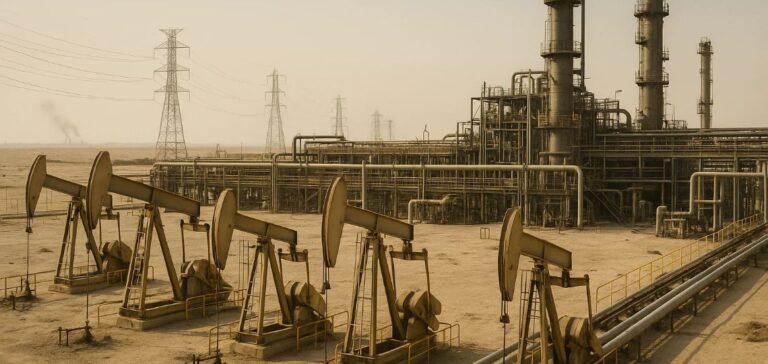The Saudi energy sector has long been dominated by the direct use of crude oil in power plants and industrial facilities. However, an analysis by Rystad Energy reveals that the development of the Jafurah shale gas field, set to begin production in 2025, could significantly alter this dynamic. This project, the largest of its kind globally, is expected to enable Saudi Arabia to replace up to 350,000 barrels of crude oil per day by 2030. This shift will not only reduce domestic crude consumption but also free up more oil and refined products for export, strengthening the country’s position in global energy markets.
The Jafurah Project and Vision 2030
The Jafurah project is part of Saudi Arabia’s Vision 2030, which aims to increase gas production by 60% from 2021 levels while diversifying the country’s energy mix. This project is expected to attract more than $100 billion in investments over the next decade, making Saudi Arabia the third-largest producer of shale gas in the world. Located near Aramco’s Uthmaniyah gas-processing plant, Jafurah benefits from increased logistical efficiency, reducing the costs associated with long-distance pipelines.
A strategic shift towards natural gas
Saudi Arabia is increasingly focusing on natural gas as a cleaner, lower-carbon alternative to oil and coal. This strategic pivot, coupled with the OPEC+ decision to cap Aramco’s oil production at 12 million barrels per day by 2027, aims to maintain price stability while increasing domestic gas consumption. Gas production is expected to reach 13 billion cubic feet per day (Bcfd) by 2030, marking a major expansion in the kingdom’s gas supply.
A more gas-friendly economy for electricity generation
Natural gas is now the preferred solution for domestic electricity generation. National gas, priced between $2 and $2.5 per million British Thermal Units (BTU), is economically more advantageous than crude oil, which currently trades above $70 per barrel. Gas-fired plants, particularly high-efficiency combined-cycle units, can now operate at 60% efficiency, compared to just 30% for crude-fired systems. This results in operating costs six to eight times lower per kilowatt-hour, thus supporting the kingdom’s strategy to replace oil with gas in its energy mix.
An opportunity for crude oil exports
This shift towards gas is expected to free up significant volumes of crude oil for export. By 2025, the Jafurah field is expected to offset the use of 35,000 barrels per day of crude oil, a figure that will gradually increase to 350,000 barrels per day by 2030. This development comes at a crucial time, as demand for oil products in Saudi Arabia is projected to increase by 100,000 barrels per day by 2030, primarily due to the rising consumption of gasoline and diesel.
Saudi Arabia is thus aligning its strategy to maximize oil and refined product exports while strengthening its position in an ever-changing global energy landscape.






















